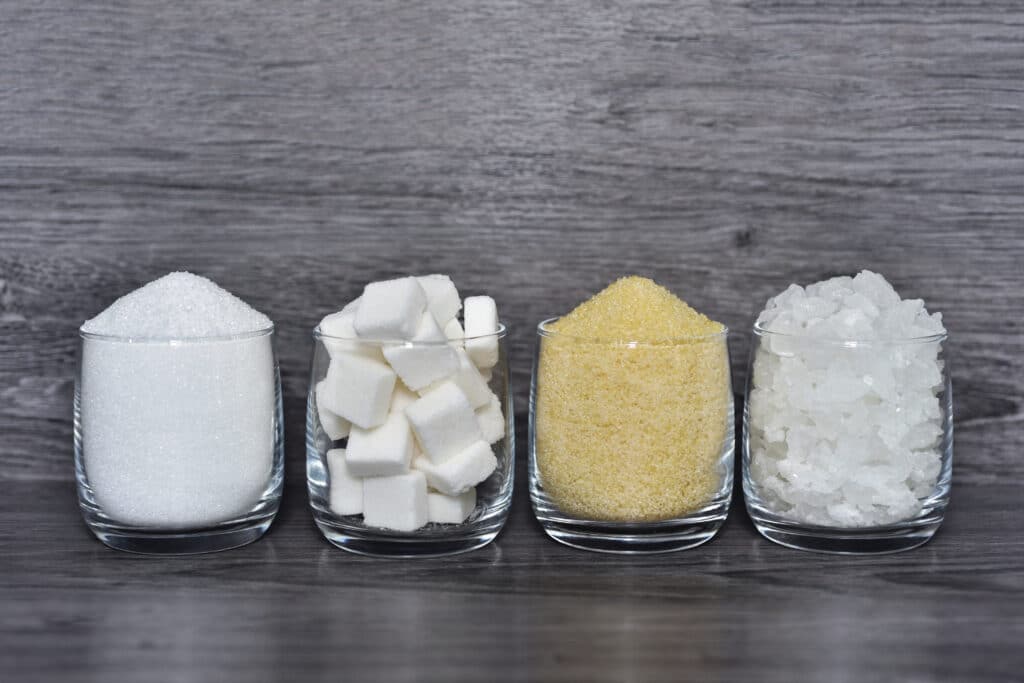Alcoholism is a complex disorder affecting millions of people all over the world. One aspect of alcohol use disorder is the craving for sugar among those in early recovery. Delving into the neuroscience behind this occurrence and exploring some practical coping mechanisms can provide valuable insights for those wondering, “Do alcoholics crave sugar?” It seems an especially timely question, since March is National Nutrition Month.
Sugar’s Impact on the Brain
The consumption of both sugar and alcohol triggers the reward center of the brain. This results in the release of dopamine, a neurotransmitter associated with pleasure and reward.
Such a mechanism sheds light on the overlapping cravings experienced by people struggling with alcohol addiction and people with a sweet tooth. After all, both substances spark similar neural pathways, contributing to the repetitive and reinforcing effects of addiction.
Sugar’s Role in Alcoholism
While undergoing alcohol addiction treatment, some people find themselves grappling with a craving for sugary snacks—candy, soda, cookies, and other baked goods. This craving stems from the fact that sugar-rich food and drink can prime the release of endorphins and dopamine in the brain’s nucleus accumbens, mirroring the neurochemical responses elicited drugs and alcohol.
In fact, a 2010 study published by the National Library of Medicine suggests that a large number of alcohol-dependent individuals have a sweet preference, specifically for foods with a high sucrose concentration.
One reason for this preference may be that alcoholics tend to often suffer a deficiency in thiamine, a B-vitamin essential for processing sugar. This deficiency can lead to intense sugar cravings as the body tries to compensate for its lack of thiamine.
Also, the consumption of sugary snacks replenishes the body’s glycogen stores, a vital energy source stored in the muscles and liver. During bouts of alcohol consumption, glycogen depletion is common, leading to feelings of fatigue and weakness. Consuming sugary foods provides a quick energy boost and enhances mood.
Still, one should keep in mind the classic pitfalls of excessive sugar intake. Weight gain, insulin resistance, and metabolic disturbances all compromise the recovery effort and exacerbate health issues.
How to Manage Sugar Cravings in Recovery
Do alcoholics crave sugar? Yes, they can. Effectively managing these cravings is paramount for people striving to maintain sobriety. Some practical strategies include:
Find Support
Seeking support from peers, friends, family, or support groups can provide invaluable encouragement and accountability in navigating sugar cravings.
Avoid “Trigger” Foods
Identifying and avoiding trigger foods, such as highly processed snacks and sweets, goes a long way toward minimizing the frequency and intensity of sugar cravings.
Exercise Regularly
Routine physical activity not only serves as a healthy distraction, it also releases endorphins, which can help stop those nasty sugar cravings and enhance mood.
Get Enough Sleep
Ensuring that one is getting sufficient sleep is essential for managing stress levels and regulating appetite hormones. As a result, one decreases the likelihood of indulging one’s sweet tooth.
Practice Mindful Consumption
Adopting mindful eating practices involves being fully present and aware of one’s own habits. Techniques such as pausing to reflect on one’s cravings, savoring the flavors involved in each meal, and practicing portion control can empower people to make more conscious choices.
Some Healthy Alternatives to Sugar-Rich Foods
Exploring healthy alternatives to sugar (not to mention alcohol) to satisfy sugar cravings is a good idea when it comes to supporting one’s recovery efforts. These healthy alternatives include:
- Natural sweeteners. Honey, maple syrup, or stevia provide sweetness with added nutritional benefits and fewer adverse effects on one’s blood sugar levels.
- Fresh fruits. Fresh fruit not only satisfies sugar cravings, it provides essential vitamins, minerals, and fiber, all of which promote overall physical health. Additional pro tip: Dates are a sweet fruit that can be eaten on their own or used in recipes for energy bars and smoothies. Dates also happen to be a great source of fiber and important minerals.
- Herbal teas and mocktails. Herbal teas and alcohol-free mocktails offer bright alternatives to sugary drinks or alcoholic beverages, allowing people to enjoy a satisfying beverage without compromising their health.
- Seek support. Joining a support group or getting professional counseling for one’s cravings provides vital emotional support during the recovery process. It can also help to manage one’s triggers that lead to sugar cravings.
By following these tips, people in recovery can overcome their sugar cravings in healthy ways and maintain their sobriety, all while improving their overall mental and physical health.
The question, “Do alcoholics crave sugar?” underscores the complexity of addiction and recovery. However, by unraveling the mechanisms at play and implementing a few coping strategies, one can better manage their sugar cravings and help themselves along the way toward long-term sobriety and wellness.
With mindfulness, the finding of healthy alternatives, and effective support, people can reclaim control over their relationship with both sugar and alcohol, fostering holistic well-being.
Find Help for Handling Sugar Cravings at Northpoint Colorado
Are you concerned that your drinking has reached a level that is excessive or out of control? If so, you’re not alone. Embarking on the journey toward long-term sobriety can be essential to protecting your mental and emotional health, to say nothing of your long-term physical health.
For more information on how to cope with the absence of alcohol from your life, consult the professionals at Northpoint Colorado. Every day, we use therapy to help our program participants improve their resistance to negative social influences. That’s just one of the many ways we support your recovery from drug or alcohol problems. Just call us today at 970.315.9347 for more details. You can also reach us online.

